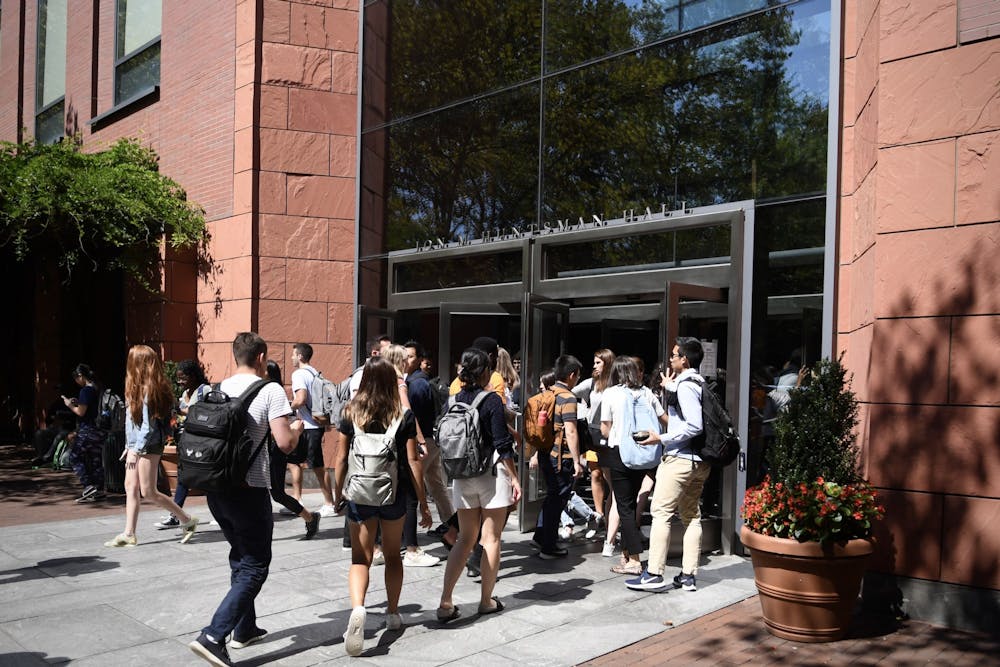The Wharton School will offer a new quantitative finance major to MBA students beginning this fall.
The major will be housed under Wharton’s Finance Department and will be supported by a new quantitative finance professorship and scholarship program, Wharton Dean Geoffrey Garrett announced. The new programs were funded by an $8 million donation from Bruce Jacobs, a 1986 Wharton Finance Ph.D. graduate and advisory board chair of the Jacobs Levy Equity Management Center for Quantitative Financial Research.
Wharton Finance Department Chair Joao Gomes said the new major was created was to compete with peer institutions that offer a master’s degree in finance.
“It’s really popular now to have a master’s in finance, and it has become important at a number of schools,” Gomes said. “We thought the best response to this was not to create a master’s in finance but rather to create this particular path in the current MBA program.”
Although Wharton currently offers a finance major to MBA students, Gomes said the quantitative finance major differs in curriculum. He said new Wharton courses have been created specifically for the quantitative finance major — including classes in data science, asset pricing, and financial engineering — and will be offered to both undergraduate and MBA students in fall 2020.
“These classes are going to be taught at a level that I think is much higher than what you see elsewhere,” Gomes said. “I’m proud to say almost every class will be taught by full-time tenured finance faculty.”
He said a quantitative finance major in the MBA program will equip students for leadership roles better than a master’s degree in finance earned elsewhere would. Although earning a master’s in finance would teach students technical finance skills, Gomes said it would not give them the soft communication and leadership skills that Wharton MBA students are required to learn.
“The two-year MBA program is a better product because it allows us to combine the technical skills of the quantitative finance major with a leadership foundation,” he said.
RELATED:
Wharton to continue actuarial science concentration for 3 years following student backlash
Wharton will defund Public Policy Initiative and let go of at least two staff members
Gomes said the new major is geared towards students who either have a quantitative background in fields such as statistics and computer science or have experience in the finance industry. MBA students who major in quantitative finance should be looking at careers in asset management, financial engineering, or risk management, he added.
Gomes added that the Finance Department will also add “tracks” to the undergraduate finance concentration. Beginning in fall 2020, Wharton undergraduates concentrating in finance will be able to specialize in a certain sector of finance by choosing from a number of tracks, ranging from quantitative finance to capital markets and banking.
The Dr. Bruce I. Jacobs Professorship in Quantitative Finance will appoint experts in quantitative finance to Wharton's finance department. The Dr. Bruce I. Jacobs Scholars in Quantitative Finance will give $25,000 to second-year MBA students pursuing a major in quantitative finance. These students will be invited to the Jacobs Equity Management Center for Quantitative Financial Research annual conference.









